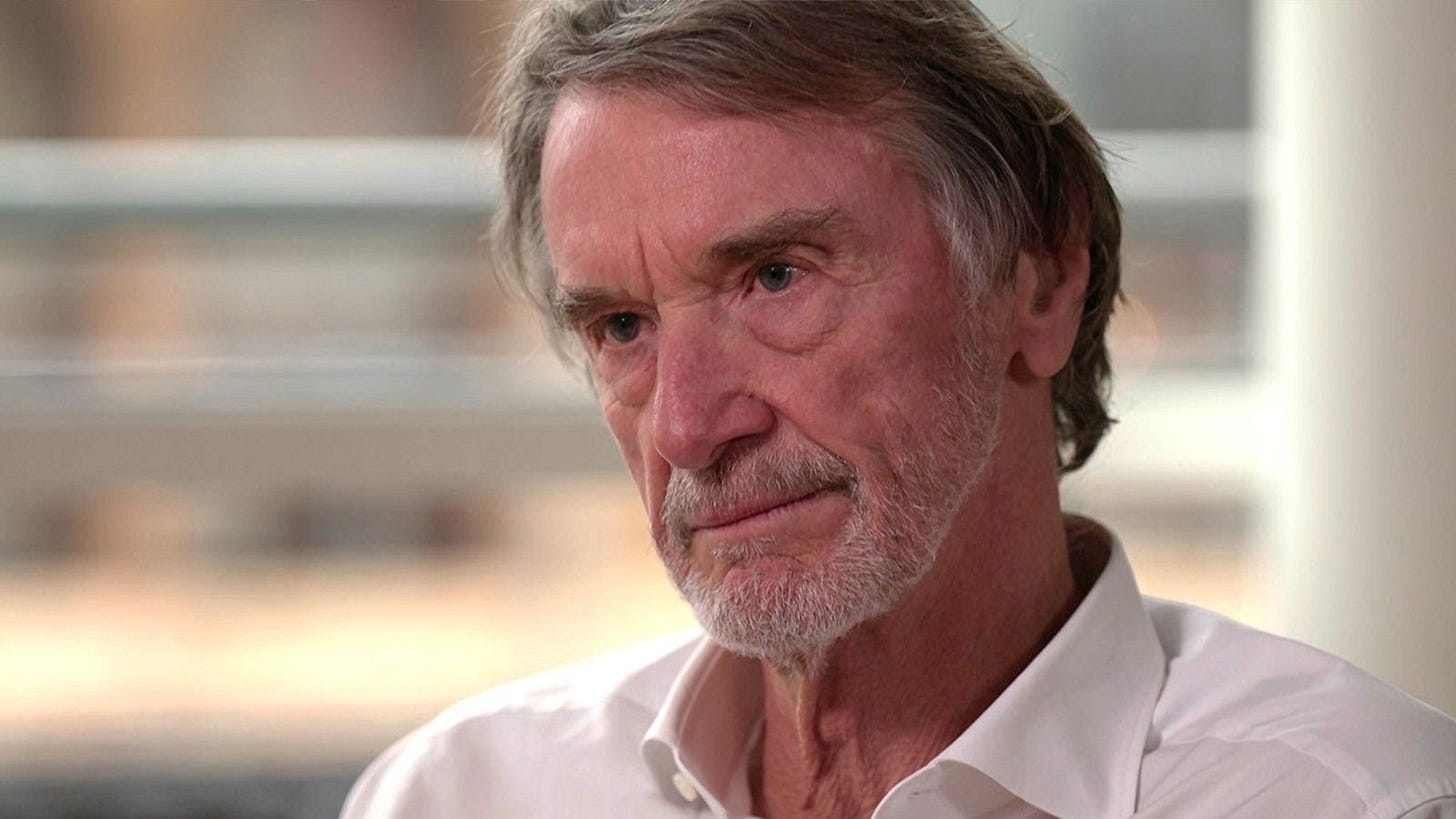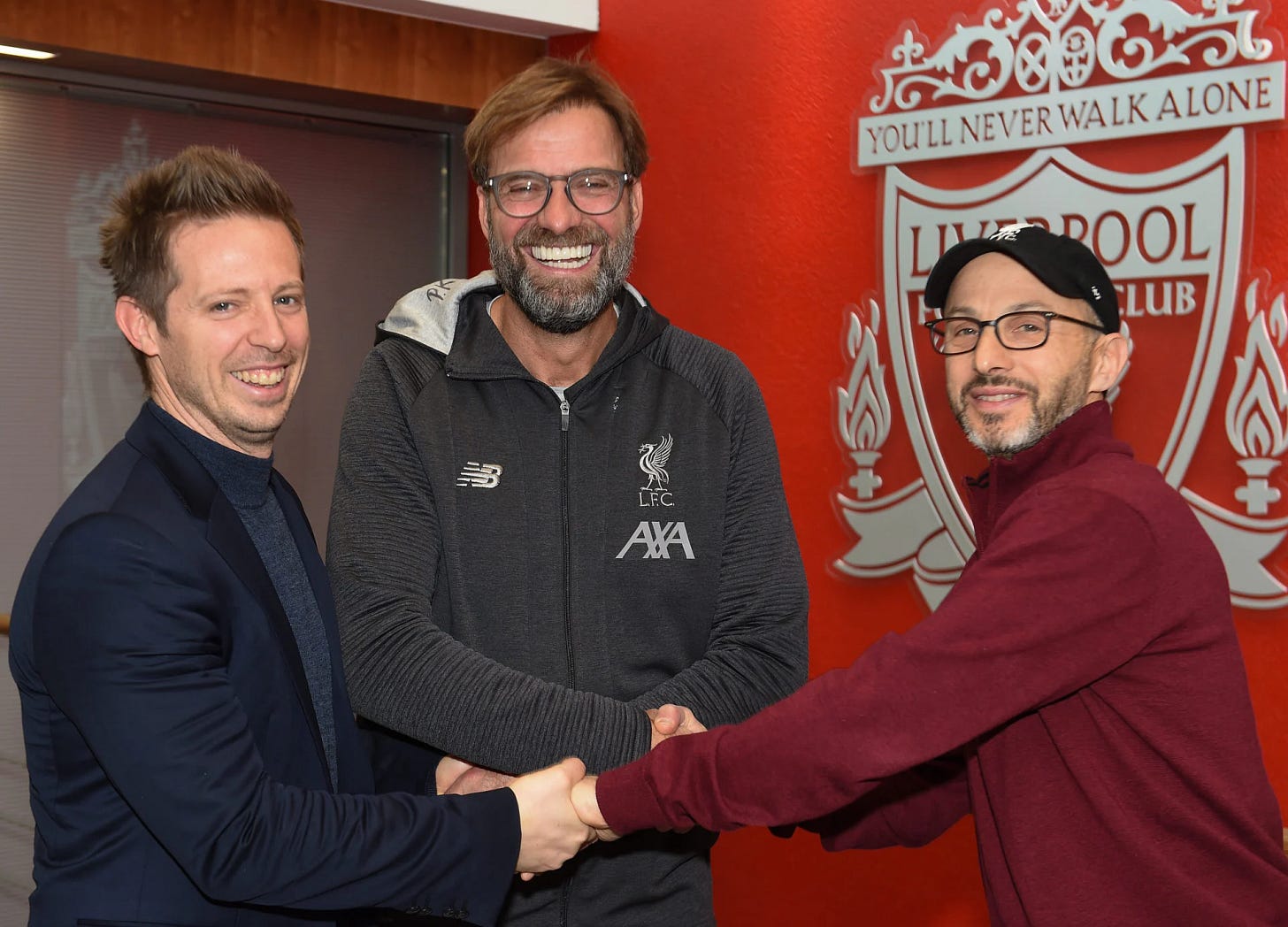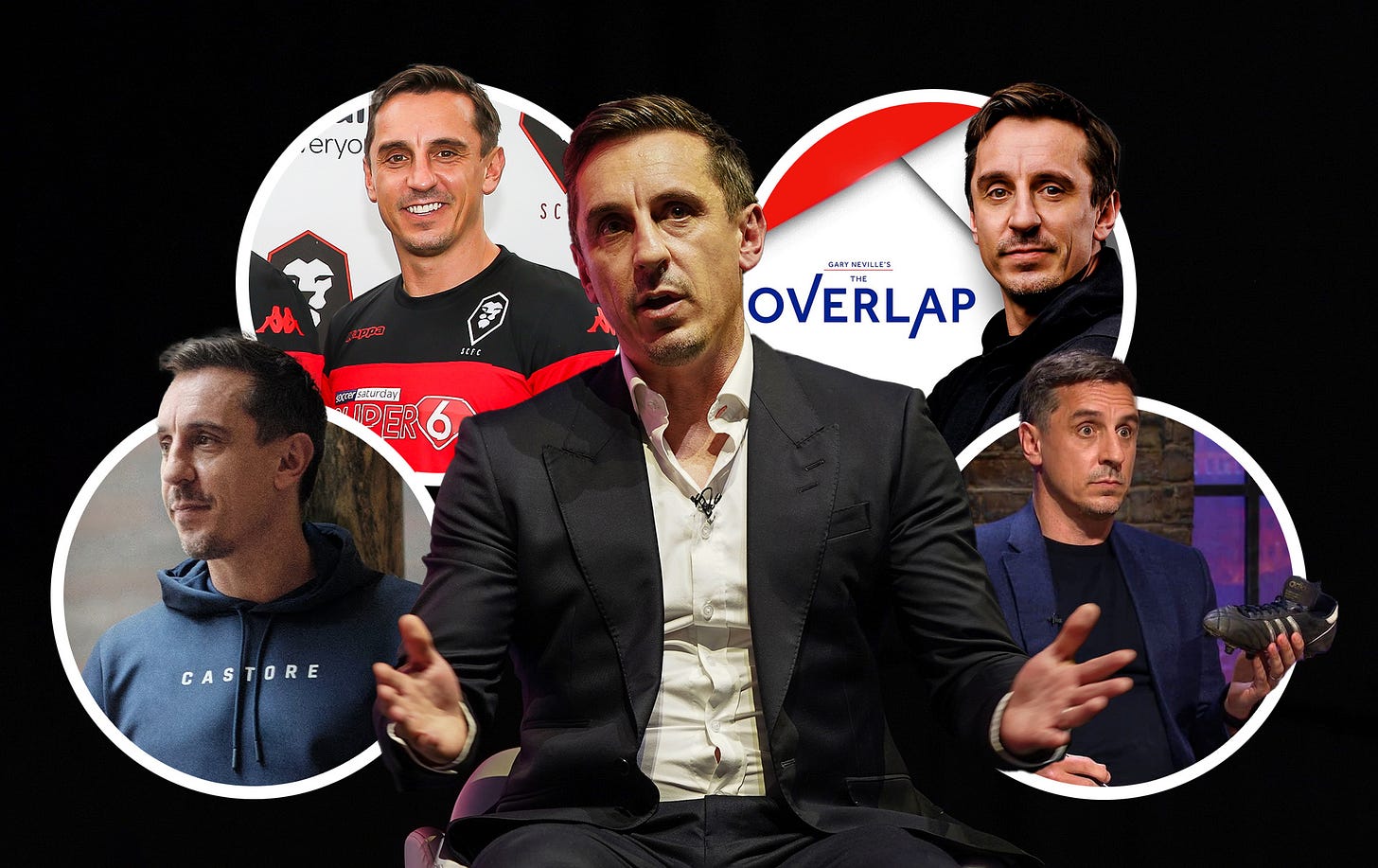What Ratcliffe can learn from Steve Jobs.
Words about the honest but somewhat unsettling sit-down with Gary Neville.
The Ratcliffe interview highlights one thing above anything else to me.
At an establishment as massive as Manchester United, I’d assume, like many that the intelligence, deep thought, and novel ingenuity on board scaled up as the size of the business did.
Hearing Sir Jim Ratcliffe speak, it feels as if United look and sound like they’re run by the most normal of people and not in a good way.
There’s a fumbling lack of assuredness in the same way a first time startup might possess.
Jim Ratcliffe’s profession that ‘nobody brought that idea up,’ and that he would’ve considered it, when Neville spoke about how a player-led dinner to raise funds for ex-players instead of cutting their funding might’ve been a more viable alternative — well, that’s what I’m talking about.
But this is Manchester United, a club with centuries of legacy and millions in money — leverage in their name brand second to very few.
I want to reflect on some Steve Jobs quotes. Manchester United’s failures aren’t footballing failures, they’re systemic team-wide failures.
‘The most important product I ever built was the team,’ Jobs said.
Everything came secondary to the team.
Having a bumbling team that echoes the competencies of those in positions far more junior is completely unviable.
For Steve Jobs, he spoke about A-players compared to B and C-players, and so on.
“I observed something fairly early on at Apple, which I didn’t know how to explain then, but I’ve thought a lot about it since. Most things in life have a dynamic range in which [the ratio of] “average” to “best” is at most 2:1.
For example, if you go to New York City and get an average taxi cab driver, versus the best taxi cab driver, you’ll probably get to your destination with the best taxi driver 30% faster.
Now, in software, and it used to be the case in hardware, the difference between the average software developer and the best is 50:1; maybe even 100:1.
Very few things in life are like this, but what I was lucky enough to spend my life doing, which is software, is like this.”
As a side note, I would add that sports teams are like this too, in my opinion, the ratio feels that stark.
Jobs continued:
“So I’ve built a lot of my success on finding these truly gifted people, and not settling for “B” and “C” players, but really going for the “A” players.
And I found something… I found that when you get enough “A” players together, when you go through the incredible work to find these “A” players, they really like working with each other.
Because most have never had the chance to do that before. And they don’t work with “B” and “C” players, so it’s self-policing. They only want to hire “A” players.
So you build these pockets of “A” players and it just propagates.”
Now a team of A-players are individuals who are one of ones, unique in their completeness and skillset.
It’s not simply a combination of the smartest, or the best spoken or the most experienced as individual traits.
By opting for B-players who look like A-players, you start sliding down the slippery slope of a group of supposed cosplaying experts.
If things don’t work out, who can fault a plan that meant putting smart people in a room.
It looks and sounds good on paper but it misses the point.
The combination of individual intelligence does not make for group intelligence.
A-players tend to bring intelligence and experience but they also bring drive, integrity, and an ability to make others better.
A-players want to work with other A-players. And their qualities work in tandem to bring out of others their strengths.
This reflection matters and is relevant for both the back room and the playing squad.
In businesses, the most successful founders often end up altering their job title to something more apt for their skillset.
There is a very honest self-reflective nature to their leadership.
In the same way, Manchester United’s leadership spearheads have to understand their strengths and not rule out of ego or hierarchy.
From the outside looking in, someone like Gary Neville appeared to have more football business acumen. Your public facing analysts read the ten Hag situation with more precision too.
What becomes evident through this interview is the fundamental disconnect between the club's storied reputation and its operational reality.
When institutions grow to Manchester United's magnitude, they often lose the nimbleness that once defined them, replacing innovation with bureaucracy and vision with management.
Until the club embraces a culture that doesn't merely collect impressive resumes and status, in staff and players alike, think the Sancho signing, but instead cultivates a self-reinforcing ecosystem of exceptional talent—individuals who challenge, elevate, and demand excellence from one another, and with deep consideration for how each piece works within the collective —Manchester United will remain caught in this cycle of mediocrity.





